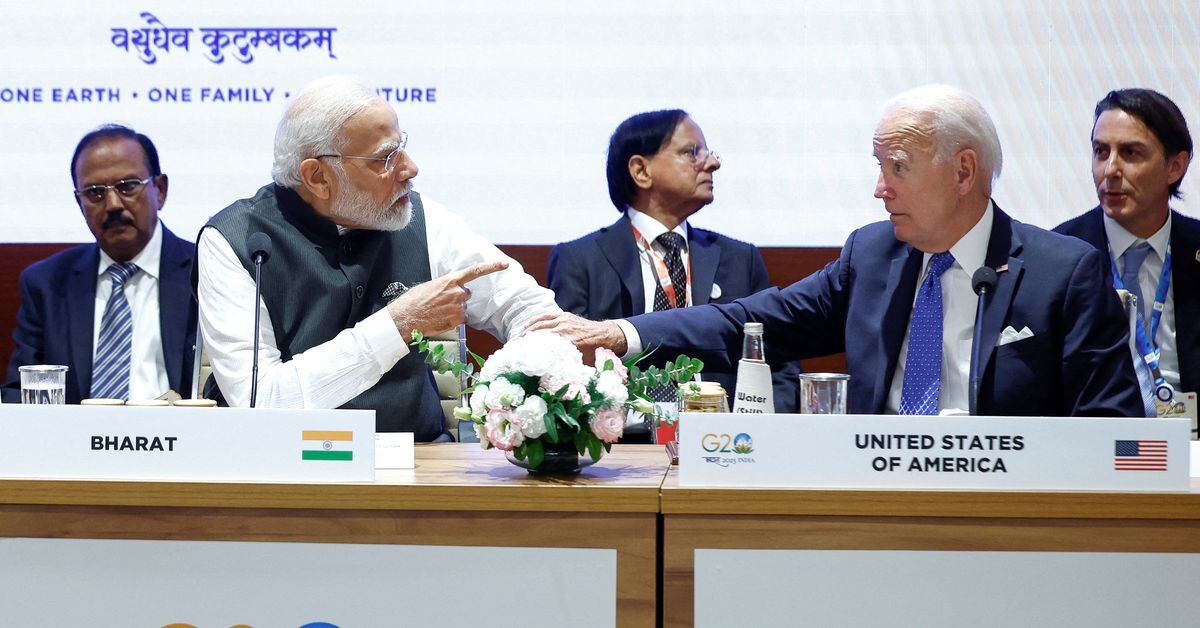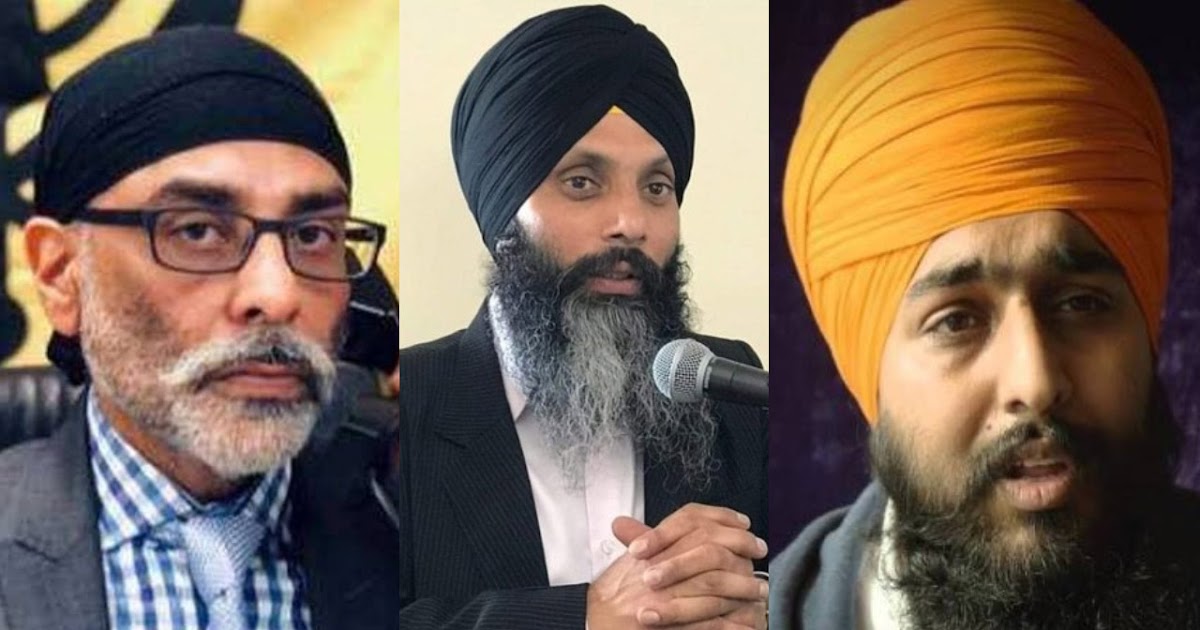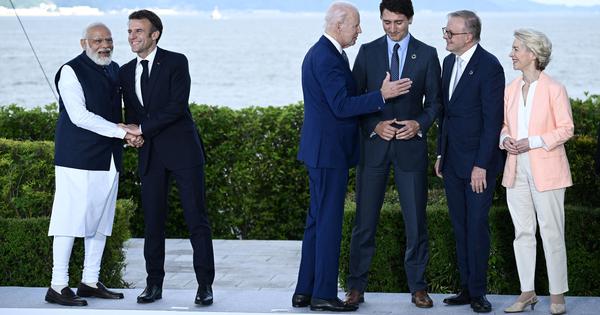Already paralyzed from a 1988 assassination attempt, he was transferring himself from his car to his wheelchair when his killer or killers struck. He didn’t…

vancouversun.com
Journalist Tara Singh Hayer's assassination still unsolved 20 years after fatal shooting
Already paralyzed from a 1988 assassination attempt, he was transferring himself from his car to his wheelchair when his killer or killers struck. He didn’t stand a chance.
wenty years after the slaying of Surrey journalist Tara Singh Hayer, his family’s most vivid memory is of his blood covering their garage floor.
“I ended up having to go back to the garage to clean up this massive pool of blood which was left from where dad was shot,” his daughter-in-law Isabelle recalled this week.
Daughter Rupinder also said she couldn’t erase the devastating scene from her mind: “Even afterwards, that image of where the blood was, you still see that.”
More frustrating than their haunting memories is the fact that no one has been charged in the unprecedented execution of a Canadian journalist, despite a two-decade-long police investigation.
“It makes you frustrated. It makes you angry,” Hayer‘s son Dave, a former Liberal MLA, said this week as the family met with Postmedia News.
Alexandra Ellerbeck, of the New York-based Committee to Protect Journalists, said it is extremely rare for a journalist to be murdered in Canada or the U.S.
But, she said, there is an expectation that the slayings that have occurred will be solved.
“We expect to see prosecutions and justice in cases of journalists murdered in Canada and the U.S. I think there is an expectation that those cases will be given high priority and they will be solved,” Ellerbeck said.
Solving the cases of murdered journalists “is such an important message for press freedom globally,” she said.
“Truth and justice are just so important for the families and the communities. It is really hard to overstate that. It is really frustrating, especially when there is a decent amount of evidence and information.”
‘I am not capable of defending myself’
The 62-year-old founder of the Indo-Canadian Times was gunned down just before dinner on Nov. 18, 1998, as he arrived at his Guildford home from his newspaper office.
Already paralyzed from a 1988 assassination attempt, he was transferring himself from his car to his wheelchair when his killer or killers struck. He didn’t have a chance.
For years, Hayer had used his Punjabi newspaper to become a vocal critic of violent extremist groups such as those linked to the 1985 Air India bombing plot that left 331 dead.
He had even agreed to be a Crown witness in the terrorism case, telling police that years earlier, while visiting a British colleague, he had overheard a confession by Ajaib Singh Bagri, one of the men later charged and acquitted in the bombing.
Hayer was no stranger to threats. In January 1986, a bomb targeting him was left on the doorstep of his family’s print shop. His son-in-law saw the wires sticking out of a McDonald’s bag and called police. Then in August 1988, days after he had published details of the confession he says he overheard, Hayer was shot in his newspaper office by a youth who later pleaded guilty to attempted murder.
Months before his 1998 murder, Hayer wrote to the head of Surrey RCMP, expressing his concerns about the barrage of threats he was receiving.
“Given that these threats are escalating and becoming more severe in nature, I respectfully request your assistance in the investigation of these threats, which I hope will cease as a result,” Hayer said in his March 19, 1998, letter to then Chief Supt. Terry Smith.
“I respectfully request that you take immediate action with this regard. Time is of the essence. I am not capable of defending myself as easily as I used to when I could walk.”
Police responded five days later, scolding Hayer for not contacting them sooner.
“I am concerned that you have not brought these matters to our attention previously, given that there seems to be an ongoing series of these incidents,” Smith wrote. “We view these circumstances as most serious and if they are ignored or not reported, it makes our job exceedingly more difficult to complete.
“If you fear for your life, and you feel you are in immediate danger, you should be contacting our complaints line,” Smith said. Or Hayer could call 911 if the matter was “more urgent,” Smith suggested.
Warnings weren’t taken seriously, family says
The police did investigate, Dave Hayer said. They also installed security cameras at the family home — cameras that weren’t working the night of the fatal shooting.
“My dad, he didn’t want to feel like a prisoner with the police with him all the time,” he said. “But I don’t think the police did enough.”
He said police knew that the people after his dad were linked to terrorism. And there was additional evidence from the 1988 shooting that was not pursued after the youth who shot Hayer — Harkirat Singh Bagga — pleaded guilty.
For example, the .357 Magnum that Bagga used in the 1988 attack on Hayer had been provided by a California man who was also the owner of a gun found in the residence of Inderjit Singh Reyat, the only man convicted in the Air India bombing. So Bagga had links to the Air India suspects.
“There was a real threat there. And police did what they normally do — they said, ‘Tell us when somebody is there at your door ready to shoot you.’ Otherwise, they are not willing to provide enough protection.”
Hayer named several of the suspects behind the threats in his letter to police.
His son says there should have been no mystery as to the motive behind the murder.
“It is a case just like Air India, where they knew who the people were behind the scenes … and they also know the people behind the scenes who wanted my dad killed,” Dave Hayer said. “In a case like that, where you have a lot of background information about the people involved, still after 20 years charges haven’t been laid.”
Police have continually urged community members to come forward with information. But the fact that Hayer had agreed to be a witness in the biggest terrorism case in Canadian history and ended up dead doesn’t instil confidence in other potential witnesses, his son said.
“When you talk to any Canadian, it doesn’t matter what their background is — if the killers, the shooters or the criminals threatened your wife and your kids or your husband, would you still go and testify? They all say no. They are willing to risk themselves, but they are not willing to risk their family. Our justice system does not really protect the victims.”
John Major, the retired Supreme Court of Canada justice who headed the Air India inquiry, was extremely critical of police for how Hayer was treated.
Article content
“The manner in which the RCMP handled the entire Hayer affair leaves much to be desired,” he wrote in his 2010 report. “Tragically, the murder of Tara Singh Hayer, while he was supposedly under the watch of the RCMP, not only snuffed out the life of a courageous opponent of terrorism, but permanently foreclosed the possibility of his assistance in bringing the perpetrators of the bombing of Flight 182 to justice.”
Murder investigation overlapped with Air India probe
After Hayer was assassinated, the investigation into his 1988 attempted murder was reopened and new evidence gathered. So when Air India charges were laid against Bagri and Ripudaman Singh Malik in 2000, Bagri was also charged in the 1988 plot against Hayer.
But the charge was later stayed when the key witness sabotaged his evidence, claiming he had been threatened and no longer wanted to testify.
After Malik and Bagri were acquitted of all Air India charges in 2005, the RCMP ramped up its investigation into the Hayer murder, launching Project Expedio.
They already had a possible witness — a young gangster who earlier told police that his associate Robbie Soomel had admitted to being the “wheelman” the night Hayer was killed, while another gangster named Daljit Basran was the shooter.
Article content
The witness claimed Soomel told him the Babbar Khalsa — the terrorist group behind the Air India bombing — had paid the young hitmen $50,000.
Soomel was convicted in an unrelated gang murder in 2004 and remains in jail. Basran vanished in 2006 and is believed to be dead.
But Expedio investigators targeted Soomel’s older brother Raj in a “Mr. Big” operation, where undercover cops posed as organized criminals and befriended him. They tried to get him to provide information about the Hayer murder. He didn’t.
Raj Soomel did tell his new “friends” that he wanted to kill the witness who talked to police. He was charged and later pleaded guilty in 2008 to the attempted murder of the witness. Then Soomel was himself murdered in a case of mistaken identify while living in a Vancouver halfway house.
Project Expedio investigators not only searched for more evidence in Hayer’s 1998 murder, they took another look at the files in the 1988 attempted murder case and even the 1986 bomb plot.
And they conducted a second “Mr. Big” operation, targeting a suspect in the bomb plot named Jean Gaetan Gingras. Gingras admitted that he arranged for a device to be placed at Hayer’s Surrey office in January 1986 at the request of a Babbar Khalsa member in Montreal. But he told the undercover cop posing as a South American drug lord that the bomb was just to send Hayer a message. No one was supposed to get hurt, he said.
Gingras was charged and convicted of conspiring to purchase cocaine as part of the investigation, but was not charged in the bomb plot. He was sentenced to 10 years in jail in 2012.
Killers looking over their shoulder, says retired Mountie
Retired RCMP deputy commissioner Gary Bass said this week that Expedio came close to laying charges in the Hayer murder.
“That was a major, major push and got very close to getting to the truth. But it didn’t get there,” said Bass, who retired in 2011.
The investigation into Hayer’s assassination has unique challenges, Bass said, just like the Air India terrorism case.
Bass said he has “absolutely” no doubt that Hayer’s murder was linked to both his journalism about the Air India suspects and the assistance he provided to police in the terrorism investigation.
The fact he was brutally murdered has created the catch-22 that has made his slaying tough to solve.
“The Hayer case is kind of proof about the dangers that are involved in getting involved in helping the police,” said Bass, who never met the journalist but has gotten to know his family well over the past two decades.
“Dave and his family have just been incredibly supportive over the years, which is really important to the investigative team to have that kind of support in the background.”
He said the public loses sight of “just how high-profile an individual Hayer was in terms of all the awards he received … and the fact that he is probably still the only journalist in Canada that has been killed for what he was doing. I think that kind of gets glossed over.”
Despite the challenges, Bass thinks Hayer’s killers will be brought to justice some day.
“There certainly have been lots of homicides much older than that which have been solved in recent years,” Bass said. “There are just so many people who had either involvement or knowledge, you always have the hope that someone is going to do the right thing for whatever reason, whether it’s conscience or being forced into it by circumstances.”
From all his years in policing, Bass is sure of one thing.
“A lot of people tend to think that when a case gets this old, the perpetrators are just kind of living the good life and thinking they got away with it. But I don’t think that is the case at all. In my experience, people who have committed murder are continually looking over their shoulder,” he said.
The RCMP did not respond to a Postmedia request for updated information about the Hayer murder investigation.
Paper’s survival keeps Hayer’s memorial alive
The Hayer family has kept the Indo-Canadian Times alive for the last 20 years as a tribute to their patriarch.
His daughter Daljit was the last to see him alive as he left the newspaper office in a Newton strip mall.
“Dad said, ‘I’m going now.’ I was the last one to put him in the wheelchair,” she recalled, her voice breaking.
Within an hour, she got the news of his shooting, as did Rupinder and their youngest sister Satpaul, who also works at the newspaper.
They called Dave and told him to go to the family house. They just said their dad was sick. When Dave got close to the house, there were police lights flashing, ambulances.
“Once I saw all that, I though, ‘Okay, somebody probably killed my dad.’ There were always so many threats. It wasn’t like this was a shock that this would happen,” he said.
Their mom, Baldev, told her children they must carry on with the newspaper. They went back to the Indo-Canadian Times office that night to remake the front page with news of his murder.
“I think the strength we got was from our mom,” Rupinder said. “I did not realize that our mom was that strong.”
And the next day, they all went around delivering the newspaper to their customers, as they have now done every week since.
Said Dave: “We have to continue what he started. That’s why after 20 years, our family is still running the paper.”
[email protected]











